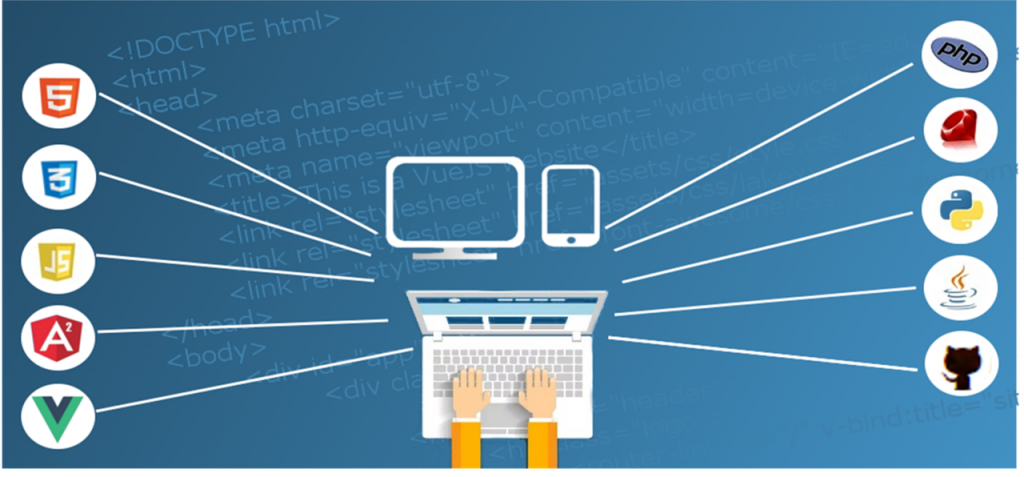Everybody in the IT industry is fascinated (or scared) of artificial intelligence. The fear, however, is more a result of misinformation than anything rooted in reality. Thankfully, machine learning has a better reputation, even though it’s the most important approach to achieving artificial intelligence. Machine learning consists of algorithms that are capable of consuming massive amounts of data. These algorithms understand patterns from the data and then translate the insight into actions. In this manner, machine learning algorithms are able to carry out analyses and actions they are not explicitly coded to do. Sounds interesting? Here are the skills you need to forge an exciting machine learning career for yourself.
Why build a machine learning career?

Machine learning has already penetrated human lives. The online advertisements you find so relevant to your needs are targeted at you using machine learning.
The same ideas are at work when Amazon makes suggestions for products relevant to what you want. The contents of your newsfeeds on social media, the playlists you love on music streaming apps, and the search results you see on search engines — all use machine learning.
Machine learning has brought the coveted “order of magnitude” improvement in processes that cut across industries. It’s powering advanced software products. It’s also where all industries are putting major chunks of their IT spending. No wonder people want to know more about the skills they need to make it big in machine learning.
Know the basics of machine learning
Machine learning is a conglomeration of data modeling, probability, and statistics. Any domain or academic experience you have in these domains will take you a long way in a machine learning career.
Data modeling: A lot of machine learning has to work with unstructured data. Its analysis is heavily dependent on data modeling, where the underlying structure of a dataset is estimated to fill gaps. To create robust algorithms, you need robust data modeling knowledge.
Probability: Machine learning algorithms need to deliver reliable outcomes even while dealing with uncertainty. The principles of probability and derivative techniques are crucial for data scientists and machine learning programmers.
Statistics: To create models from data, developers need sound knowledge of statistics and its branches such as hypothesis testing and variance analysis. Statistics models are, hence, crucial for artificial intelligence algorithms. This is not a job for Alan Harper from “Two and a Half Men”!
Get exquisite programming skills

Make no mistake, you will need all the knowledge from the world of programming to make a successful machine learning career.
Brush up the basics of computer science and programming, because machine learning will require that you be absolutely comfortable with concepts such as data structures, algorithms, and computer architecture.
Machine learning algorithms don’t work in isolation and are often a part of larger systems where they’re fully integrated with several other components. This means the ML programmers need to be comfortable working with APIs, and must also be able to design future ready interfaces. All the long hours spent in learning the ropes of software development life cycle will also come in handy.
Concerned? Well, once you get the basics right, you can leverage your ability to work with libraries (such as Google’s TensorFlow and Microsoft’s CNTK). Plus, there are already dozens of APIs and packages created by other credible developers, that you can reuse in your projects, once you know how they work and can map them to your business applications.
Get expertise in ML-relevant programming languages
There are no dedicated programming languages for machine learning. Programmers need to identify languages that have the features necessary for their machine learning projects. In fact, machine learning libraries are already available in multiple programming languages.
That said, it’s being witnessed in the industry that master programmers with at least a working knowledge of the major languages used for machine learning are able to grow quicker in their careers. Here are a couple of them:
Python: Easy to learn, and easy to implement algorithms in – Python is a hot favorite among leading machine learning experts. It supports object-oriented, procedure-oriented, and functional programming. The development cycles of ML projects using Python can be shortened as compared to C++ and Java.
R: Nothing better than R to analyze and manipulate data for statistics. The language’s AI focus is bolstered by the presence of libraries such as RODBC, Class, Gmodels, and Tm, which have already been extensively used in machine learning. When you need to realize complex mathematical models in code, R is the easiest language to code in.
Advanced signal processing 101
Though the enterprise you work at might have signal processing experts in their data science and machine learning teams, you’d do well to get the hang of the basics of this body of knowledge. Feature extraction is a major area of focus within machine learning, and signal processing is a key to that.
Signal processing algorithms help you solve problems in different innovative ways using algorithms such as wavelet, contourlets, curvelets, and bandlets.
Fourier analysis and convolution are other crucial signal processing techniques with salient advantages in machine learning. Signal processing isn’t easy to learn. The upside is that it will speed track your machine-learning career.
Read, socialize, and stay relevant
Machine learning is different from other vistas of technologies in two ways. Firstly, the pace of growth in the technology is great.
New techniques, methodologies, algorithms, libraries, and paradigms are exploding on the scene frequently. You will need to stay current. Subscribe to leading tech blogs, follow technical conferences, and keep an eye out on research papers.
Secondly, machine learning’s growth trajectory is being shaped by industrial applications. So, the kind of projects you choose, and the effort you invest in learning new tips and tricks of the trade, must be well aligned with the demands of the industry. That’s how you build a fulfilling, well paid, and growth-focused career in machine learning.
Stay curious
Thinkers from the machine learning industry suggest that the single best guest skill you need for sustenance and success in a machine learning career is an undying sense of curiosity. You’d be able to appreciate how all the skills we suggested above could appeal to your sense of curiosity. Happy learning.
Featured image: Pixabay



